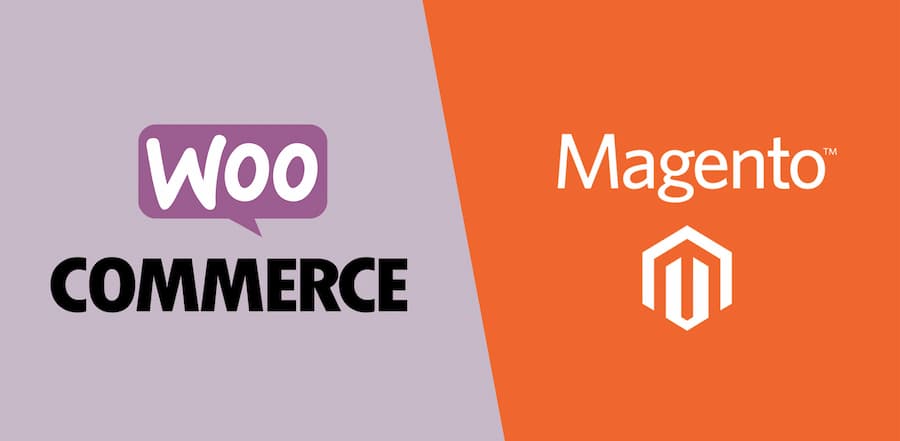Comparing both are extremely popular and have a robust feature set. Selecting a general winner is difficult, and comparing the capabilities of every platform might make you perplexed and unable to provide your clients with an online shopping experience. Thankfully, we are available to assist you in making a knowledgeable choice. When it comes to e-commerce platforms like Woocommerce Vs Magento there is no perfect answer but if you are equipped with the information you need you can select the best option for your particular nееds. Every platform has a devoted fan base that stands behind it and says it is the greatest.
WooCommerce:
You’ve probably heard of WooCommerce if you’ve ever dabbled in online commerce. With only a few clicks and this WordPress plugin, you can easily convert your ordinary website into an eCommerce platform. For anybody intending to begin selling online, it’s a game-changer.
Pros:
Speed of Setup:
It’s really easy to set up an eCommerce store in WooCommerce and start selling your goods if compared to other solutions. Simply purchase the hosting service, and you’ll be functioning properly in a matter of minutes! It is that easy! Furthermore, WordPress is renowned for having an intuitive user interface which renders it simple to use. The aforementioned content quality system makes content creation and modification easier with its drag-and-drop feature and readily navigable areas.
Free Plugins And Tools:
We may argue that WooCommerce’s simplicity of use makes it an attractive choice for online businesses, but what’s even better is that WooCommerce and WordPress both come for free. This implies that the only expenses you will have are for hosting and any extra plugins you might require to improve the operation of your website. It’s an affordable option which lets you concentrate on developing your internet presence, which is what counts.
An Enormous Community:
WooCommerce’s abundance of potential has led to the formation of a sizable community that offers store owners a wealth of resources. Numerous articles, videos, tutorials, and other useful resources will be at your disposal to assist you set up your store and address any technical problems which may come up.
Cons:
Absent Direct Assistance:
As was already indicated, the lack of instant customer help is one potential downside of this technology. For people who are unfamiliar with internet sales and require professional assistance, this could render the procedure very difficult. In the absence of a direct technician, it may become a little confusing.
Be Mindful of Human Error:
Using WooCommerce may have certain disadvantages, but with a little effort, these may be readily solved. WooCommerce is a safer and more user-friendly CMS than others. It is crucial to remember that in some constructions, the degree of safety could be lower.
Magento:
The e-commerce platform Magento (Adobe Commerce) is designed for web developers and medium-sized to big online retailers. For stores with high expectations, it is the best option because it provides one of the most comprehensive sets of features available.
Pros:
Outstanding scalability:
In essence, scalability refers to how well your website manages large volumes of traffic. Fortunately, Magento is an expert in this field and has features that guarantee your website functions well regardless of the volume of goods you offer.
Personalisation:
Although Magento’s community is smaller than WooCommerce’s, it nevertheless provides a wealth of information that will assist you tailor your store to your preferences.
Cons:
Increased Price:

It’s crucial to remember that, frequently, you may nevertheless need to use paid extensions to add new functionality to your business even if you decide against purchasing the full Adobe Commerce solution. But don’t worry, you have many of alternatives at your disposal to assist you in reaching your objectives.
This also applies to WooCommerce, however, generally speaking, Magento extensions are more expensive than alternative solutions. It’s critical to take into account all related expenses because they might mount up and significantly affect your spending plan.
Absent Assistance:
In this instance, WooCommerce has a benefit over Magento because WordPress plugins come with an abundance of online resources and information. If a seller makes any errors or runs into issues with Magento, it may be more difficult for them to locate support online. In the end, this can have a detrimental impact on their standing and earnings.
Few Developers:
This relates to the preceding point: administrators frequently employ developers to create unique tools for their eCommerce stores, even though many resources support Magento. Discovering developers with experience with WooCommerce is indeed far easier than locating those with experience with Magento, particularly on the internet. Even though this drawback isn’t usually an issue, we nonetheless felt it was necessary to mention it in our analysis. We are aware that various circumstances can call for various analyses.
Final Words:
Each CMS has advantages and disadvantages. Since it ultimately depends on your unique demands, there is no universally accepted way to determine whether one is superior to the other. WooCommerce is frequently the first option that most people use when building an e-commerce store, particularly if you’re just getting started. The premium edition of Magento may be exactly what you’re looking for if you’re building up a store for a large corporation with a tonne of goods to offer.




